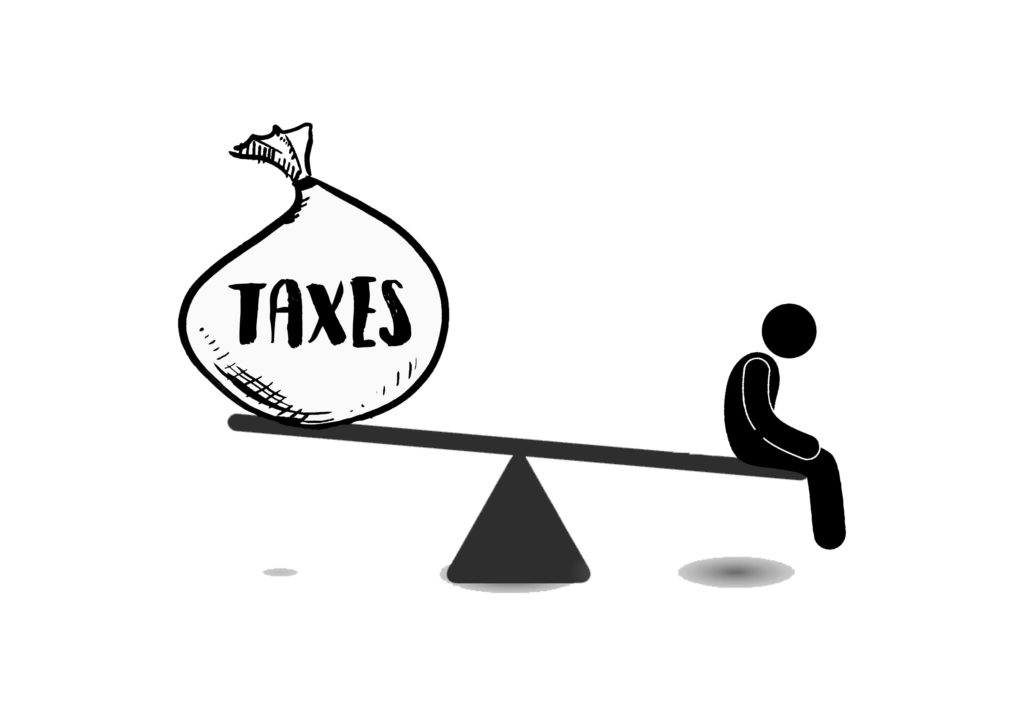On Thursday, Nov. 16, the U.S. House of Representatives passed a major rewrite of the tax code, a significant step in the Republicans’ current attempt to pass new tax legislation that could threaten college finances. The legislation has been working its way through the House and the Senate for some time, and last Thursday, Nov. 9 President Kington sent out a special campus memo to inform the Grinnell community about the bill’s potential implications and to implore people to call their representatives saying they do not support the bill.
“I wouldn’t usually send out [a memo] like that,” Kington said. “The reason I did in this case is because [according to] the drafts as publicly discussed and circulated in the newspapers, this was a piece of legislation that would have [a] pretty significant, direct impact on students, in ways that are relatively unusual.”
The memo outlined a number of possible components of the legislation that could have a negative impact on the College. These include a 1.4 percent excise tax on private college endowments, the repeal of the Student Loan Interest Deduction, the removal of tuition benefits for employees’ dependents and the banning of tax-free bonds for private schools’ building projects. Although the language of the bill drafts is neither specific nor finalized, the possibilities presented cause major concerns, especially for Grinnell’s endowment and the aid it provides to students.
“Over half of our budget comes from the endowment. Many of us forget how extraordinary that is,” Kington said. “Between a quarter and a third of our students basically get free tuition. Very few schools can say that, especially among the elite schools with large endowments. One of the biggest things in our budget is $49 million last year in financial aid. It’s inevitable that [the tax] would affect that ability — either we’re going to reduce a service or some function or salaries that may limit our ability to get quality teaching faculty.”
If the 1.4 percent excise tax were enacted, it would result in the loss of between $1.5 million and $4 million dollars from the endowment. This is a significant portion of the $48.5 million that goes towards institutional grant aid this year, of which 87 percent of Grinnell students receive some portion.
“[This legislation] is driven by reasons that are purely political, which is that the Republican government needs to show that it can do something,” Kington said. “One of the reasons why colleges and universities are in the cross hairs is because the governing party isn’t thrilled about our institutions. We’re perceived of as being elitist and liberal and democrats and blue states and all the way down the line.”
At the end of the special campus memo, Kington urged students to call their representatives to express their concerns about the proposed changes. When asked, Kington provided solid guidance on how to talk to your representatives in Congress.
“One, be extraordinarily polite. Two, state in unambiguous terms what your position is and why. You could say, for example, ‘I’m a student at Grinnell College in Iowa. Grinnell College has a large endowment. Much of their endowment goes to pay for the cost of the College, including my aid, my grant aid. To add this tax means that money that would go to help this institution function is now going to the federal government and that I strongly object to this.’”
The College will keep Grinnellians informed as the bill continues to move through the Senate. In the meantime, Kington finds some optimism in the differences between the House and the Senate’s bills and thus the opportunity for compromise.
“I’m hopeful that some of these issues can be addressed. It looks like the Senate side and the House side might be quite different on a number of dimensions, so there might be something of a reconciliation process between the two,” he said. “I can only hope that some of these components are addressed at a time when it’s even more clear that higher education remains the engine of social and economic mobility in this country.”























































